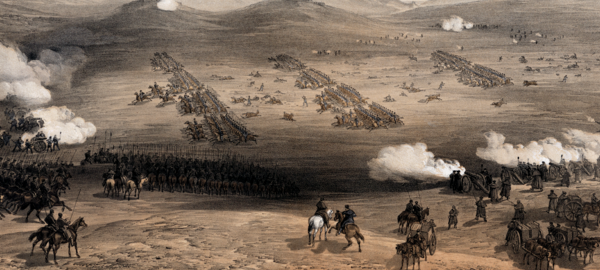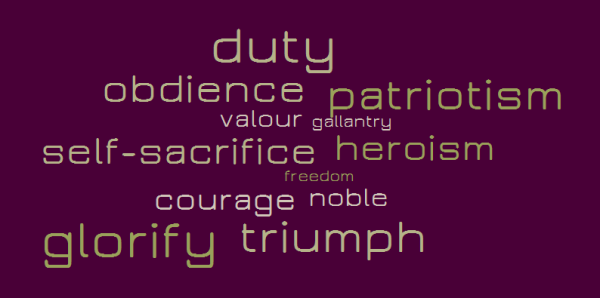We have all heard a lot about the Crimean crisis during the last couple of weeks. After the Soviet collapse, Crimea seems to have become vitally important to the Kremlin. The future will show whether the Black Sea peninsula will rejoin Russia or remain Ukrainian territority – and whether the conflict is to be resolved peacefully.
While Western media today express deep concern about a possible military escalation in the Ukraine, the mid-19th-century Crimean War (1853-1856) was seen in a completely different light. Standing one’s ground on the battlefield was considered by most Victorians as a just, noble and heroic action which deserved high praise. English poet Alfred Tennyson therefore commemorates the battle at Balaklava on October 25 1854 as an event which speaks of the virtues of the common British soldier in the face of disorder, disaster and death.
The Charge of the Light Brigade charge: attack
Half a league, half a league, 1 league: about 5 kilometres
Half a league onward,
All in the valley of Death
Rode the six hundred.
‘Forward, the Light Brigade! 5
Charge for the guns!’ he said:
Into the valley of Death
Rode the six hundred.
‘Forward, the Light Brigade!’
Was there a man dismay’d? 10 to dismay: to destroy one’s courage;
Not tho’ the soldiers knew tho’: (al)though
Some one had blunder’d: to blunder: to make a mistake
Their’s not to make reply,
Their’s not to reason why,
Their’s but to do and die: 15
Into the valley of Death
Rode the six hundred.
Cannon to right of them,
Cannon to left of them,
Cannon in front of them 20
Volley’d and thunder’d;
Storm’d at with shot and shell, shell: an explosive artillery projectile, a bomb
Boldly they rode and well,
Into the jaws of Death,
Into the mouth of Hell 25
Rode the six hundred.
Flash’d all their sabres bare, sabre: a heavy cavalry sword
Flash’d as they turn’d in air
Sabring the gunners there,
Charging an army, while 30
All the world wondered:
Plunged in the battery-smoke
Right thro’ the line they broke;
Cossack and Russian
Reel’d from the sabre-stroke 35 to reel: to lose one’s balance
Shatter’d and sunder’d. shattered: broken; sundered: split apart
Then they rode back, but not
Not the six hundred.
Cannon to right of them,
Cannon to left of them,
Cannon behind them 40
Volley’d and thunder’d;
Storm’d at with shot and shell,
While horse and hero fell,
They that had fought so well
Came thro’ the jaws of Death, 45
Back from the mouth of Hell,
All that was left of them,
Left of six hundred.
When can their glory fade? to fade: to lose colour or brightness;
O the wild charge they made! 50 to disappear
All the world wonder’d.
Honour the charge they made!
Honour the Light Brigade,
Noble six hundred!
…………………………………………………………………………..
List of Illustrations:
William Simpson, Charge of the Light Cavalry Brigade, 25th Oct. 1854, under Major General the Earl of Cardigan. Licensed by Wikicommons


